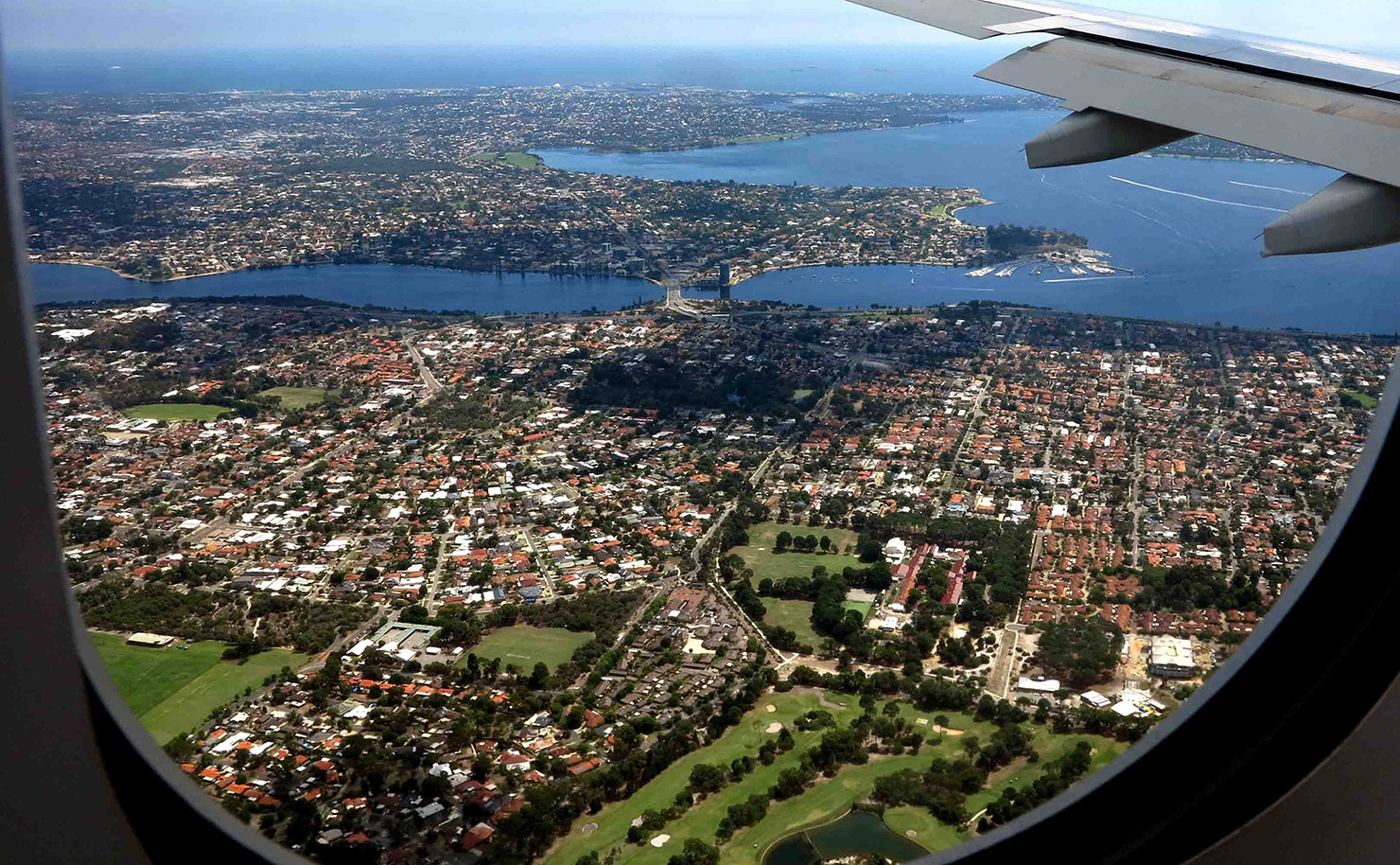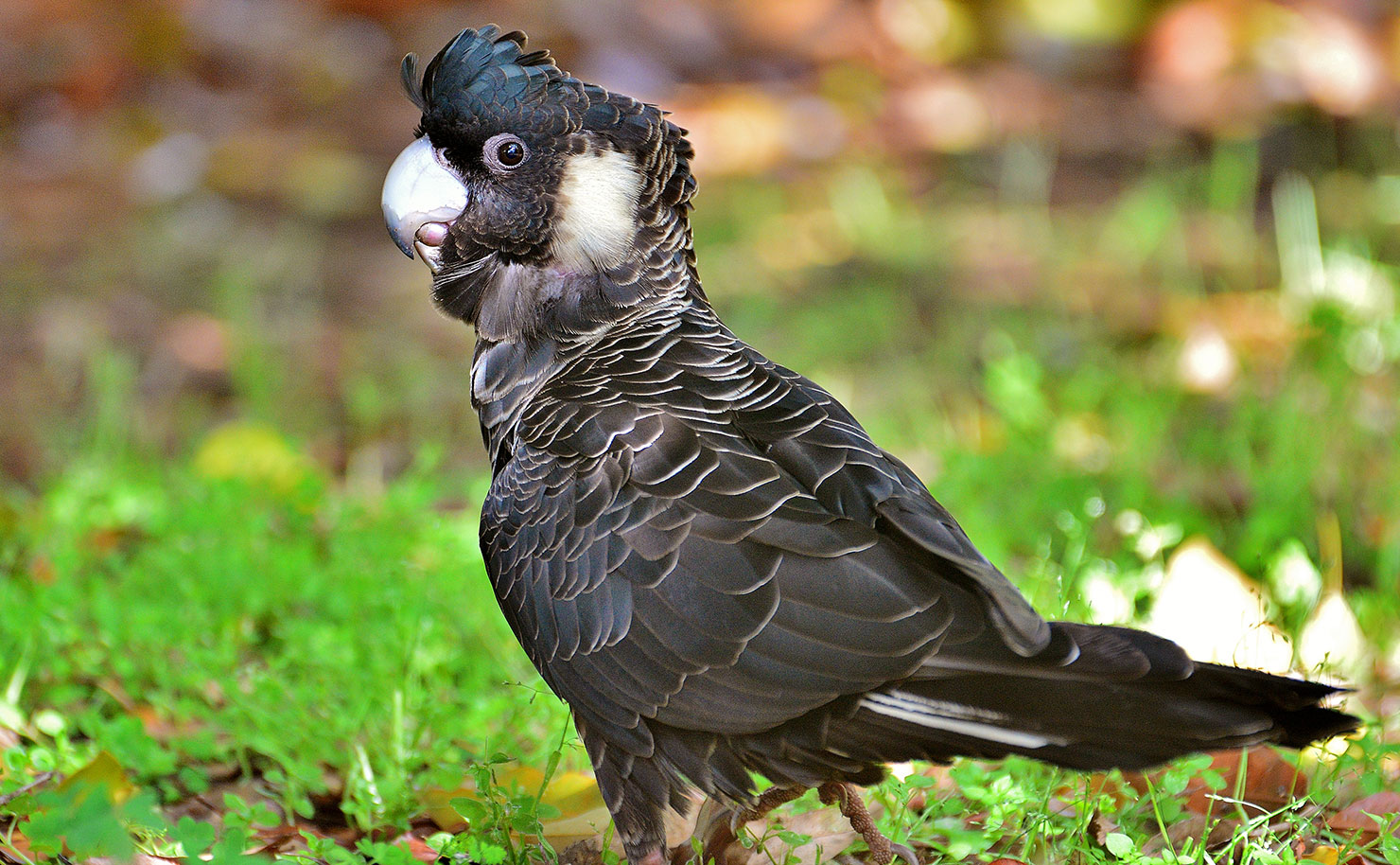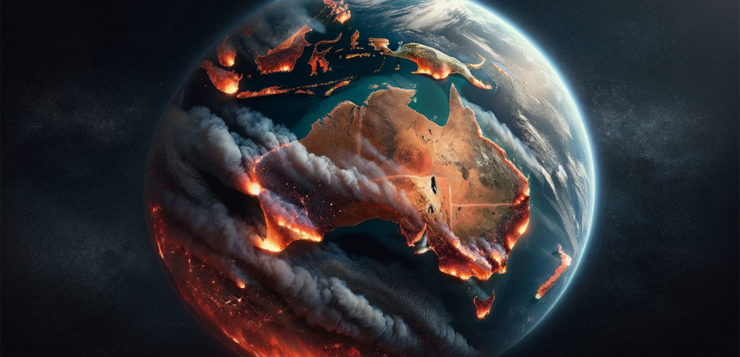There’s no great mystery behind why our planet is warming, or why our society is decaying, writes Fiona Carberry. And if you’re reading this, you’re almost certainly not amongst the people likely to be most impacted by it.
The doorbell rings on Saturday afternoon at about 4pm. It’s 37 degrees. I open the door to find a middle-aged, barefoot man wearing a cap standing on the verandah. He’s holding a Coles brown paper bag with his running shoes in it. He asks politely, “Can I have a glass of water please?” I fetch him a large glass of cold water. He guzzles it and asks for another. While I’m fetching the refill, my husband chats to the man. He’s diabetic, Noongar Yamatji and, like at least 25,000 other Indigenous Australians, he’s homeless — in his case, since being released from jail a year ago.
He finishes the second glass of water and asks if we have a bottle of cold water that he could take away; I oblige with a 1.5 litre bottle, and give him two mini-ice packs from the freezer. He smiles and says he’ll put those on his sore feet. He’s not sure where he’s heading next, probably the park at the end of our street. It’s a shady spot next to Jirdarup bushland. The man plonks his empty glass on the verandah, thanks us and walks off up our hot driveway in bare feet.
As we stand on the verandah watching the homeless man go, we’re looking directly at a vacant block of State housing land across the road. It’s been more than two years since the Housing Authority demolished the white-ant ridden duplex on that block. Such is life in WA — the Wait-Awhile State.

Several months ago, we received a copy of the plan for the vacant block across the road, asking if we had any objections. The plan is to build two dwellings to house a family and an elderly person on the old duplex site. We don’t object, but the homeowner next-door does and threatened to get his lawyer onto it. He has a caravan, a Ford 4WD and an SUV parked in the front of his 800+ square metre block, and a swimming pool in the backyard; he was hoping to buy the vacant lot to enlarge his small family’s footprint.
It’s also been about one year since the 81-year-old neighbour in the three-bedroom duplex on the other side of the vacant block asked my husband to come over for a meeting with a State Housing Authority officer to hear their plans for redeveloping his block. The plan is to add a dwelling for a single senior in his backyard. He will still have plenty of space for his roses and chooks — if he lives long enough for the plans to come to fruition!
Meanwhile, I’ve been helping a friend who lives in Geraldton, a coastal town about 400 kilometres north of Perth, with her State Housing move. She’s a Disability Support Pensioner who lived alone in a 3-bedroom house for more than 15 years. She was told to vacate to make way for a larger family. She didn’t want to move but she thought it was a fair enough reason. After many, many months of advocacy by me and a local service, and a successful formal review, my friend was finally offered a suitable one-bedroom home, and she and her dog moved into a brand-new modular State Housing property shortly before Christmas — 18 months after first being told she must move.
In the midst of this, someone set fire to the regional Housing office, which forced them to relocate.
While the Housing Authority moves at a snail’s pace, more than 19,000 people are on the waiting list for public housing in WA — that’s about 6,000 more people than five years ago. Three in every 10 applicants have been waiting more than three years. It’s the same story across the nation.
Housing crisis? What crisis?
The next morning, I wake to the familiar wee-la sounds of black cockatoos outside. I go out to the back garden to water the herbs before the mercury rises to the forecast 43-degree scorcher. Small groups of Carnaby’s cockatoos perch around the rim of the bird bath under the peppermint tree. While they drink the water, the rest of the flock wait their turn high up in the Hakea bushes. Thirst quenched, they flap their white tail feathers as they fly home to Jirdarup, where the local Council recently installed Cockitroughs: bird-waterers high above the ground that automatically refill with fresh water.

Carnaby’s cockatoos are an endangered species under Commonwealth law, and despite being protected in WA, they’re threatened by loss of habitat. The Noongar people call these black cockatoos ngoolyak, or rain birds, because they take flight in large numbers before it rains. But the rain doesn’t come for another week, and then it’s only a drizzle. Perth has a severe water shortage, with the dams only quarter-full, and the dwindling rainwater topped up with desalinated seawater.
Late in the day, my friend calls from Geraldton. It’s over 49 degrees there — the hottest day on record — and she’s sweltering in her new modular home that has only ceiling fans for cooling. The home has no solar panels and my friend is too worried about how she’ll pay her power bill to turn on the fans, using a portable fan instead. The high back fence blocks the sea breeze, and there are no trees on the property. My friend’s thermometer only measures up to 50 degrees, and it’s off the scale on her verandah.
Globally, 2023 was the hottest year on record. Australia had its warmest winter ever and its driest three months ever between August and October. Records are being smashed one after the other.
Climate crisis, what crisis?
That evening, we go to a friend’s house for dinner before a Fringe Festival show. The lights go out and the air con goes off just as we sit down to eat, so we eat by candlelight. The electricity grid has buckled under the strain of sky-high demand during the heatwave. Later, the energy regulator declares an emergency and back-up generators are turned on. Lights, air con, and TVs come back on. The vicious cycle continues — extreme temperatures, record high energy use, carbon emissions warming the planet, greater need for cooling, emitting more carbon, warming the planet….
Energy crisis, what crisis?
The biggest carbon polluters, like my litigiously-inclined neighbour, are least affected by the warming planet, while those who have the least cop the full brunt of it. In a scorching heatwave, the ‘haves’ dive into their swimming pools or retreat into air-conditioned comfort, while the ‘have-nots’ traipse the streets, hot, parched and homeless.
Inequality crisis, what crisis?
We need a circuit breaker for this polycrisis — housing, climate, species extinction, energy, and inequality — or we’ll all be extinct. It certainly won’t come from governments working in slow motion.
If it wasn’t so damn hot, I’d take to the streets in protest chanting into a megaphone:
What do we want? Action!
When do we want it? NOW!!
Donate To New Matilda
New Matilda is a small, independent media outlet. We survive through reader contributions, and never losing a lawsuit. If you got something from this article, giving something back helps us to continue speaking truth to power. Every little bit counts.




